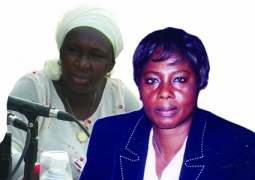Each
year, 1 million newborns die during their first day of life, 1.3 million babies
are stillborn, and more than 300,000 mothers die during pregnancy and
childbirth.
But
if all women gave birth with a midwife in a facility capable of providing basic
emergency care, it is estimated that 56 per cent of maternal, foetal, and
newborn deaths could be prevented. That’s a million lives each year. So why are
midwives still chronically under-funded and under-valued by governments and
society at large?
Maternal
mortality is the highest health inequity in the world, and midwives are the
best-skilled birth attendants who can save the lives of mothers and children
during childbirth. A midwife with the right skills and training can provide 87
per cent of the healthcare needed during pregnancy and following birth. They
are able to provide a high standard of care across the spectrum of health
contexts.
A
midwife’s services go far beyond pregnancy and birth. Throughout the entire
lifecycle, these health professionals provide essential education, health
monitoring, and primary care to babies, adolescents, and mothers. Midwives
provide sexual health information that can help stop the spread of HIV and
other STDs, they administer vaccines to infants, and they provide information
about hygiene and healthy lifestyles that can help prevent other illnesses.
Moreover,
midwives’ integrated approach to frontline healthcare helps bridge the gap
between isolated rural health centres and the communities they serve. Their
unique training means midwives are well placed to form a pillar of Universal
Health Coverage systems that ensures high-quality healthcare to all.
Investing
in midwives is also an extremely cost-effective approach to improving
healthcare. Funding and legislation to support midwife education, training, and
regulation can produce up to a 16-fold return on investment. When midwives are
involved in pregnancy and childbirth, more lives are saved and fewer emergency
interventions, such as caesarean sections, are needed.
Midwives
offer an affordable, practical solution to improving community health outcomes
so it is baffling that midwives lack the political will and support from
leaders around the world who claim to protect women and children.
A
lack of support for midwives is not just a problem for low-and middle-income
countries. High-income countries like Canada have faced similar difficulties in
recruiting and funding enough midwives to meet demand.
This
needs to change immediately. To bridge the gap between those who do and don’t
have access to the life-saving care they provide, 350,000 more midwives are
needed. To reach this goal, we will need to increase the funding, education,
and regulation that support midwives.
We
are surprised and disappointed that governments and donors have not yet
sufficiently invested in this obvious boon to family health.
We
therefore call on all governments that value their citizens, and all citizens
who value their families, to enact policy and dedicate funding to midwives.
With the right support, regulation, and training, governments can give midwives
the resources they need to save lives before, during, and after a woman gives
birth, and to enrich the medical profession as a whole. Guest editorial
“‘We
should work to guarantee that there is a midwife or health worker by every
woman’s side during childbirth’ ”
Liya
Kebede
Read Other Articles In Article (Archive)




